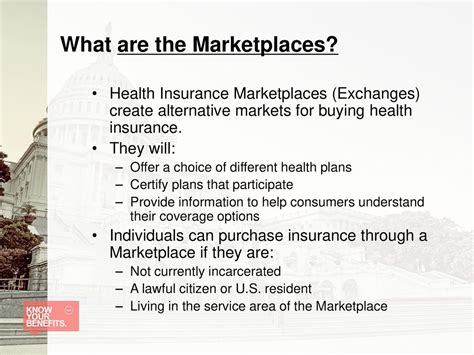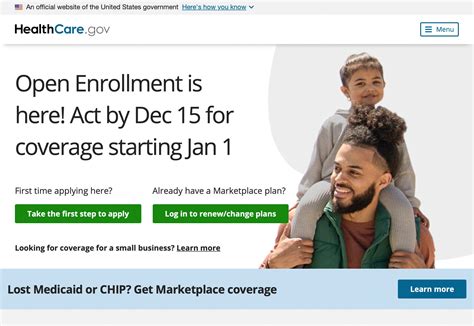Intro
Discover 5 ways to buy medical insurance, including individual plans, group coverage, and online marketplaces, to secure affordable healthcare and protect against medical expenses, premiums, and deductibles.
Purchasing medical insurance is a crucial step in securing your financial well-being and ensuring access to quality healthcare when you need it most. With the rising costs of medical care, having a comprehensive insurance plan can provide peace of mind and protect you from unexpected expenses. Whether you're an individual, family, or business owner, there are various options available to buy medical insurance that cater to different needs and budgets. In this article, we will explore the importance of medical insurance, its benefits, and provide guidance on how to navigate the process of buying a suitable plan.
The importance of medical insurance cannot be overstated. It not only covers the costs of medical treatments, hospital stays, and surgeries but also provides financial protection against unforeseen medical emergencies. Without medical insurance, individuals and families may struggle to pay for necessary medical care, leading to delayed treatments, accumulated debt, or even bankruptcy. Furthermore, medical insurance encourages preventive care, allowing policyholders to undergo regular check-ups, screenings, and vaccinations, which can help detect health issues early on and prevent more severe problems from developing.
As the healthcare landscape continues to evolve, the options for buying medical insurance have expanded. Today, individuals can purchase medical insurance through various channels, including private insurance companies, government marketplaces, employers, and insurance brokers. Each option has its advantages and disadvantages, and understanding these differences is essential to making an informed decision. Moreover, the Affordable Care Act (ACA) has introduced significant changes to the health insurance market, making it more accessible and affordable for millions of Americans. However, navigating the complexities of medical insurance plans, premiums, deductibles, and coverage options can be overwhelming, especially for those who are new to the process.
Understanding Medical Insurance Plans

Key Components of Medical Insurance Plans
When evaluating medical insurance plans, several key components must be considered. These include the premium, which is the monthly or annual cost of the plan; the deductible, which is the amount policyholders must pay out-of-pocket before the insurance coverage kicks in; copays and coinsurance, which are the costs shared between the policyholder and the insurer for specific services; and the out-of-pocket maximum, which is the maximum amount policyholders must pay for healthcare expenses within a given period. Understanding these components and how they interact is vital to choosing a plan that meets your healthcare needs and budget.Buying Medical Insurance Through Private Insurance Companies

Advantages of Private Insurance Plans
Private insurance plans have several advantages, including the potential for more comprehensive coverage, access to a broader network of healthcare providers, and often, more flexible plan options. Additionally, private insurance companies may offer specialized plans or riders for specific health needs, such as dental, vision, or long-term care insurance. For individuals and families who can afford the premiums and are seeking more tailored coverage, private insurance plans can provide a high level of satisfaction and peace of mind.Buying Medical Insurance Through Government Marketplaces

Navigating Government Marketplaces
Navigating government marketplaces requires understanding the eligibility criteria, the types of plans available, and how to apply for subsidies or tax credits. Policyholders must also be aware of the open enrollment periods and any special enrollment opportunities. For those who are new to these marketplaces, it can be helpful to seek guidance from a licensed insurance agent or a certified application counselor who can provide personalized advice and support throughout the enrollment process.Buying Medical Insurance Through Employers

Advantages of Employer-Sponsored Plans
Employer-sponsored health insurance plans have several advantages, including lower premiums due to the employer's contribution, the convenience of payroll deduction for premium payments, and often, a wider range of plan options. Moreover, these plans typically have guaranteed issue, meaning that employees cannot be denied coverage based on pre-existing conditions. However, eligibility for these plans is usually tied to employment status, and changes in job status can affect coverage.Buying Medical Insurance Through Insurance Brokers

Role of Insurance Brokers
Insurance brokers play a critical role in the health insurance market by providing expert advice, comparing plans from different insurers, and facilitating the enrollment process. They can also help policyholders understand their plan's benefits, exclusions, and any changes to coverage over time. For individuals and families seeking tailored advice and support in choosing a medical insurance plan, working with an insurance broker can be an effective strategy.In conclusion, buying medical insurance is a significant decision that requires careful consideration of various factors, including plan types, coverage options, costs, and eligibility. Whether through private insurance companies, government marketplaces, employers, or insurance brokers, there are multiple pathways to securing comprehensive and affordable health insurance. By understanding the benefits, working mechanisms, and steps involved in buying medical insurance, individuals and families can make informed choices that protect their health and financial well-being.
We invite readers to share their experiences and insights about buying medical insurance in the comments below. Your stories and questions can help others navigate this complex but crucial aspect of healthcare. Additionally, if you found this article informative and helpful, please consider sharing it with your network to spread awareness about the importance of medical insurance and the various options available for purchasing it.
What is the main purpose of buying medical insurance?
+The main purpose of buying medical insurance is to protect against financial loss due to unexpected medical expenses and to ensure access to necessary healthcare services.
How do I choose the right medical insurance plan for my needs?
+To choose the right medical insurance plan, consider your health needs, budget, and the plan's coverage, including the network of providers, out-of-pocket costs, and any exclusions or limitations.
Can I buy medical insurance at any time, or are there specific enrollment periods?
+Typically, there are specific enrollment periods for buying medical insurance, such as the open enrollment period for plans on the government marketplace, or special enrollment periods for qualifying life events. However, some plans, like those offered by private insurance companies, may be available for purchase at any time.
